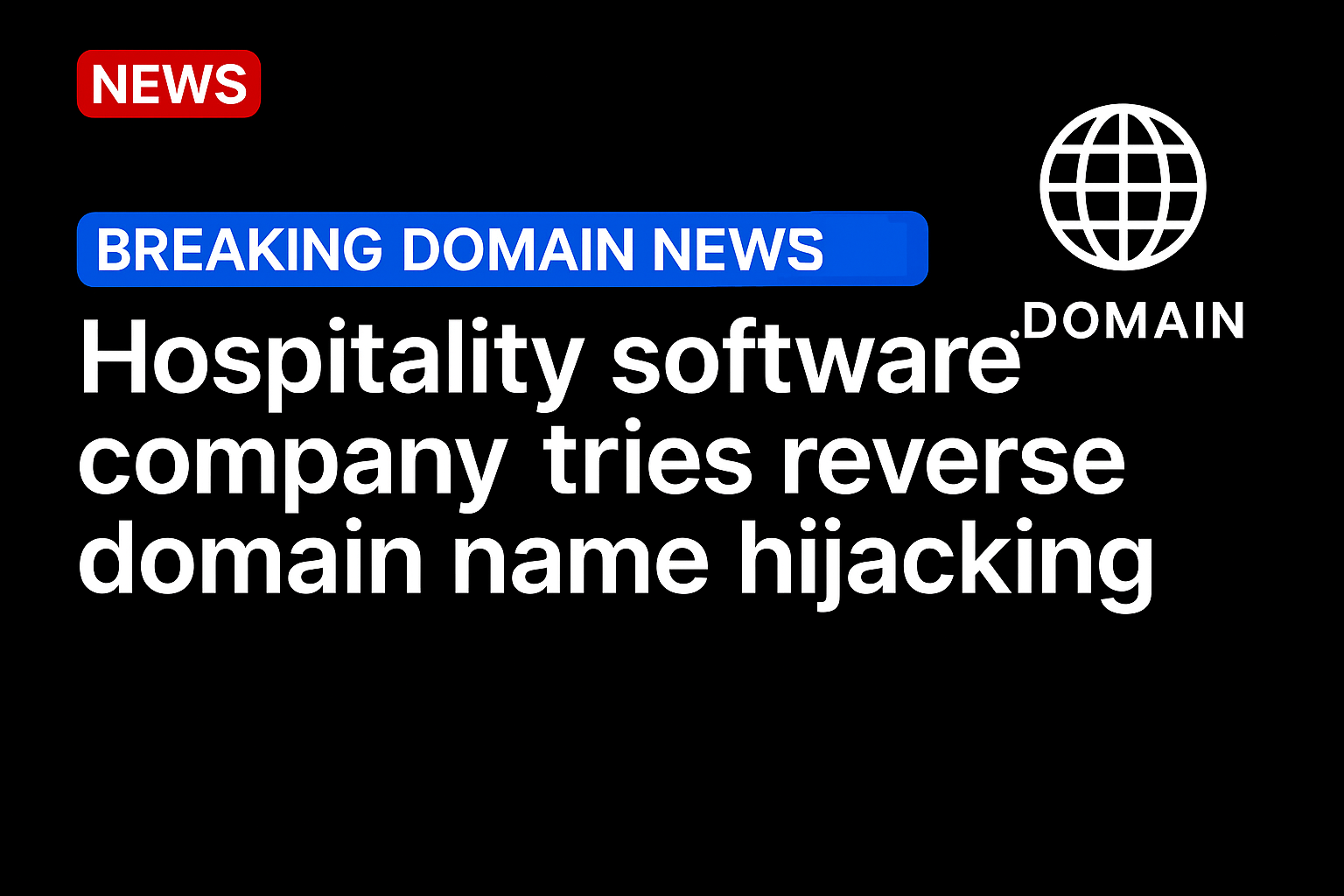
Panel determines UDRP was filed in abuse of the policy.
Australian hospitality software company Redcat Pty Ltd tried to reverse hijack the domain name redcat.com, a World Intellectual Property Organization panel has ruled (pdf).
Redcat.com was registered 29 years ago by an Oregon man who has used the domain for email and registered the name “Redcat” with the state. While the Complainant stated it has been in business for over 30 years, it did not provide any evidence to support this claim. It appears its online presence postdated the redcat.com domain registration.
Redcat Pty Ltd, which does not appear to have been represented by counsel, first tried to buy the domain name. The registrant did not reply to the overtures.
It also made a confusing reference to a prior case it filed that does not appear to exist.
The three-person panel of Nick Gardner, Neil Brown, and Lynda Zandra-Symes determined that this case should never have been filed:
In the view of the Panel this is a complaint which should never have been launched. The Complainant should have appreciated that establishing registration and use in bad faith in respect of a domain name which had first been registered twenty nine years ago and which was simply a conjoining of two common page 8 English three letter words was likely to involve difficult considerations. The Complainant appears to have ignored any such considerations. It initially tried to approach the Respondent to see if the Disputed Domain Name could be purchased. It did not in that correspondence suggest it had any prior rights to the Disputed Domain Name. Having failed by that correspondence to elicit a reply from the Respondent it subsequently launched the present proceedings. These were presented in a very limited and inadequate manner, and with no proper consideration of the issues involved, the factual background, or what the Complainant had to establish if it was to present a credible case. Given the nature of the Policy and the multiplicity of previously decided cases dealing with similar issues in relation to domain names that could manifestly have been independently derived, this was a case that had no reasonable prospects of success. It was based on only the barest of allegations without any supporting evidence.
The Panel also considers that the Complaint was misleading by omission in that it failed to make clear that the Complainant’s registered trademarks were only obtained very recently. It also did not make clear that the Complainant’s own Internet presence post-dated the registration of the Disputed Domain Name by five years. Overall the Complaint lacked any foundation for the allegations that the Respondent must have had the Complainant in mind when he registered the Disputed Domain Name. If the Complainant took competent legal advice before filing the Complaint it should have appreciated that it had no realistic prospect of success. If it did not take competent legal advice it should have carried out some basic research as to what it needed to show, and realised for itself it could not succeed. If it did not do this it has only itself to blame. In all the circumstances the Panel agrees with the Respondent that the Complaint was brought in bad faith and constitutes an abuse of the administrative proceeding.
Source: https://domainnamewire.com/




